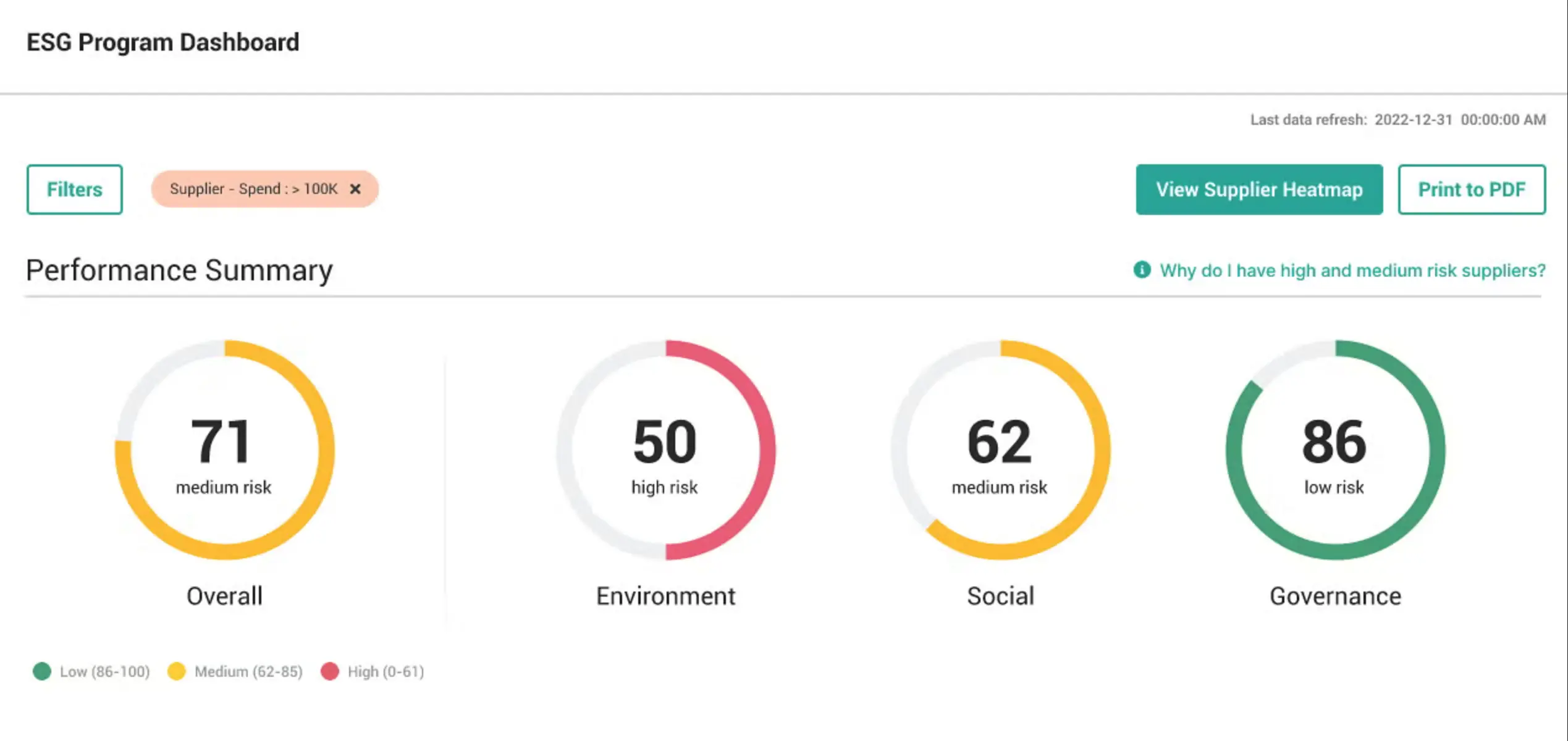Still Exploring?
Looks like you’ve been exploring our platform.
Want to see everything in one place?
View our solutions for getting standardized, validated, and usable product compliance data from your supply chain.
Supply chain transparency needed for compliance.
Identify PFAS in your supply chain and set yourself up for success.
Meet submission obligations with a deep view of your supply chain.
Deep-map your supply chain to streamline compliance.
Grow better with Assent’s TSCA compliance solution.
Uncover deep supply chain data to meet labeling requirements.
Verify the origin of your metals to avoid costly fines and delays.
See how we build your missing ESG foundation with our complete supply chain sustainability solution.
Deliver on your reporting needs with Assent ESG
Uncover hidden forced labor risks in your supply chain.
Deep transparency into mineral sourcing.
Easily see and manage the embedded emissions data of your goods.
Meet your German Supply Chain Due Diligence Act (SCDDA) requirements with confidence.
Confidently identify the entities and topics in your value chain that are most critical to compliance.
Learn about our trade compliance capabilities and how it uncovers hidden risks and opportunities.
Unlock supply chain transparency to mitigate trade risks.
Manage customs codes for your products.
Protect global market access & leverage trade agreements.
Verify the origin of your metals to avoid costly fines and delays.
Solutions for export classification code tracking.
Country of origin tracking supply chain solutions.
Discover how our automated supply chain sustainability management solutions help complex manufacturers see deeper, be smarter, and grow better.
Solutions for medical devices manufacturing.
Solutions for the electronics industry, across compliance and ESG.
Sustainability solutions for industrial equipment.
Supply chain sustainability for automotive.
Sustainability solutions for aerospace and defense.
View details about our complete supply chain sustainability platform, including product compliance, ESG, and trade compliance.
Evaluate and report on hidden risks in your supply chain.
Get a custom quote and find the right solution at the right price.
Learn about our data security protocols, to keep your information safe.
Reporting and data capabilities you need to meet your requirements.
View our integrations with SAP, PTC Windchill, and other standard APIs.
View details about our complete supply chain sustainability platform, including product compliance, ESG, and trade compliance.
Education, data collection, and technical support for suppliers.
Deep regulatory knowledge you need to build sustainable growth.
Managed services with dedicated support from world-class experts.
Assent regulatory experts have over 200 years of combined expertise. Learn more about how they helped make us the leader in supply chain sustainability.
View our content hub, including Interactive Tools, Webinars, Whitepapers, Guides and eBooks.
New Tools for understanding your requirements, risks, and our solutions.
Explore complex supply chain sustainability topics.
Get up-to-date information on constantly evolving topics.
Keep on top of existing or emerging regulations and trends.
Learn directly from experts on wide-ranging topics.
Discover why so many top companies have chosen Assent.
Access the Assent Knowledge Center, the leading regulatory resource for supply chain management, from our team of experts.
New Per- and polyfluoroalkyl substances (PFAS)
New Streamline your reporting process to comply with the EU CSRD.
Deep transparency into mineral sourcing.
Supply chain transparency needed for compliance.
Environmental, social, and governance (ESG) issues.
Deep-map your supply chain to streamline compliance.
The German Supply Chain Due Diligence Act (SCDDA) .
Grow better with our TSCA compliance solution.
Read Assent’s blog for regulatory updates, supply chain sustainability advice, best practices, and more.
Learn everything you need to know about supply chain sustainability.
Get clear educational resources on key product compliance regulations.
Discover how ESG and your supply chain are connected.
Learn best practices for managing your trade requirements.
Keep up with changing responsible minerals expectations.
Get an expert breakdown of the REACH Regulation.
Read about upcoming events and webinars hosted by our world-class team of regulatory experts.
Access comprehensive educational resources to better understand your business and regulatory requirements, and how to build your programs to mitigate supply chain risk effectively.
Learn how we became the leading supply chain sustainability management solution for the world’s most responsible complex manufacturers.
Read about our ESG journey and access our corporate sustainability reports.
See the leading manufacturers working with us to achieve supply chain sustainability.
Meet the team that helped Assent become the leader in supply chain sustainability.
Read the latest news about Assent from around the world.
View our industry and technology certifications.
Read more about the organizations and partners working with us to create supply chain sustainability.
Find out how to get in touch with us.
Become an Assentee! Learn about our culture, purpose, and opportunities.




The CSRD is part of the European Green Deal, which is a set of policies and initiatives aimed at making Europe the first climate-neutral continent by 2050. When it first came into effect, the CSRD expanded the scope of environmental, social, and governance (ESG) reporting requirements. It also required independent third-party audits of companies’ sustainability reports to ensure that the information is accurate and reliable.


However, on February 26, 2025, the European Commission published proposals for the first Omnibus Simplification Package. The proposals outline amendments to the CSRD, among other EU regulations, that reduce the regulation scope and timelines and removes a number of other requirements.


The CSRD marks a new era of non-financial reporting requirements due to rising ESG demands. Requiring standardized reporting to enable more informed investment decisions, the CSRD will significantly impact corporate sustainability reporting in the EU and have an extended ripple effect around the world. These impacts include:
Get answers to your most pressing questions about the CSRD.
Under the proposed changes to the CSRD included in the Omnibus Simplification Package, the number of in-scope companies has been reduced by approximately 80%.
The modified scope only applies to large undertakings that have more than 1,000 employees and either a turnover above €50 million or a balance sheet total above €25 million.
Originally, the CSRD applied to roughly 50,000 EU companies, extending in 2025 to include approximately 10,000 additional public and private non-EU companies.
Businesses that are not required to report under the CSRD but are a part of the value chain for in-scope entities may still be required to complete and comply with sustainability requirements for mandatory disclosure. Prepare your business for the CSRD with Assent’s comprehensive suite of solutions.
Companies that are in scope of the CSRD need to ensure that their sustainability programs are agile and proactive, because sustainability reporting requirements are a moving target. Companies should implement a platform that streamlines supplier engagement and uses AI to rapidly deliver risk insights to help protect their compliance.
While the CSRD and CSDDD are similar, they represent two different legal obligations. The CSDDD targets human rights and environmental risks in the supply chain and outlines measures to manage these risks. In contrast, the CSRD requires companies to report on their sustainability activities more broadly — this will cover elements identified in a CSDDD program, but also include further topics.
The CSRD expands the scope of the existing Non-Financial Reporting Directive (NFRD), which has been in effect since 2018. The NFRD requires large publicly traded companies to report on certain non-financial information, such as their environmental and social performance. The CSRD extends this requirement to all large companies, regardless of whether they are publicly traded or not. It also expands the scope of the information that companies are required to report on to include more detailed information about their sustainability risks and opportunities.
The ESRS and the CSRD are both crucial parts of the EU’s effort to enhance sustainability performance among businesses. The ESRS is a reporting standard that companies will use to meet CSRD requirements. It provides the framework and methodology for businesses to report their sustainability performance.
Need help navigating your requirements? Check out our latest resources and product tour.


With the advent of the EU Corporate Reporting Sustainability Directive (CRSD), manufacturers face new ESG reporting requirements. However, the CRSD does not sta …


Assent’s ESG solution offers comprehensive support for all your ESG requirements. Explore our solution and feature capabilities to see why complex manufacture …


This guide includes insights from environmental, social, and governance (ESG) experts on using product, regulatory compliance, and supply chain data to craft gr …


Looks like you’ve been exploring our platform.
Want to see everything in one place?